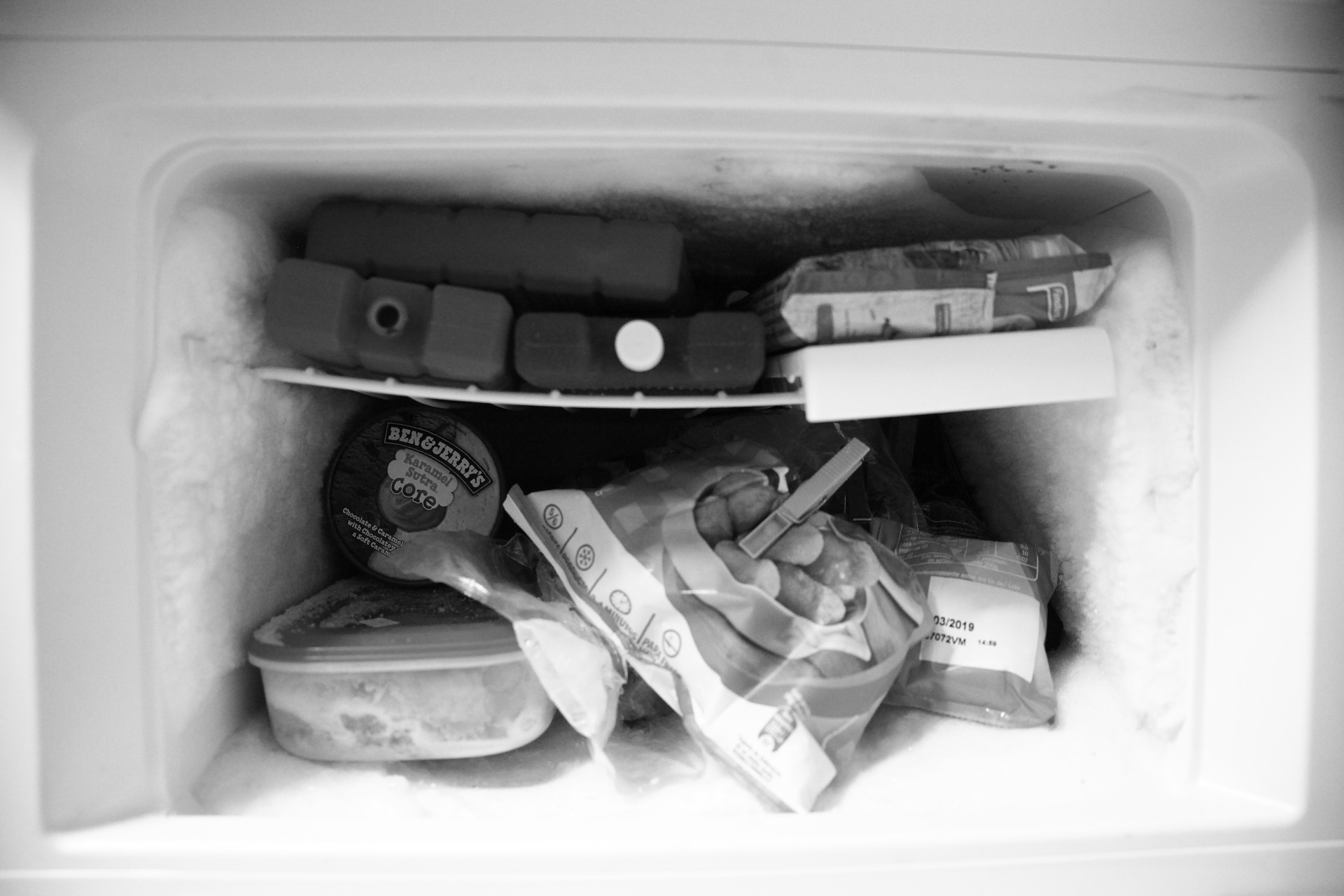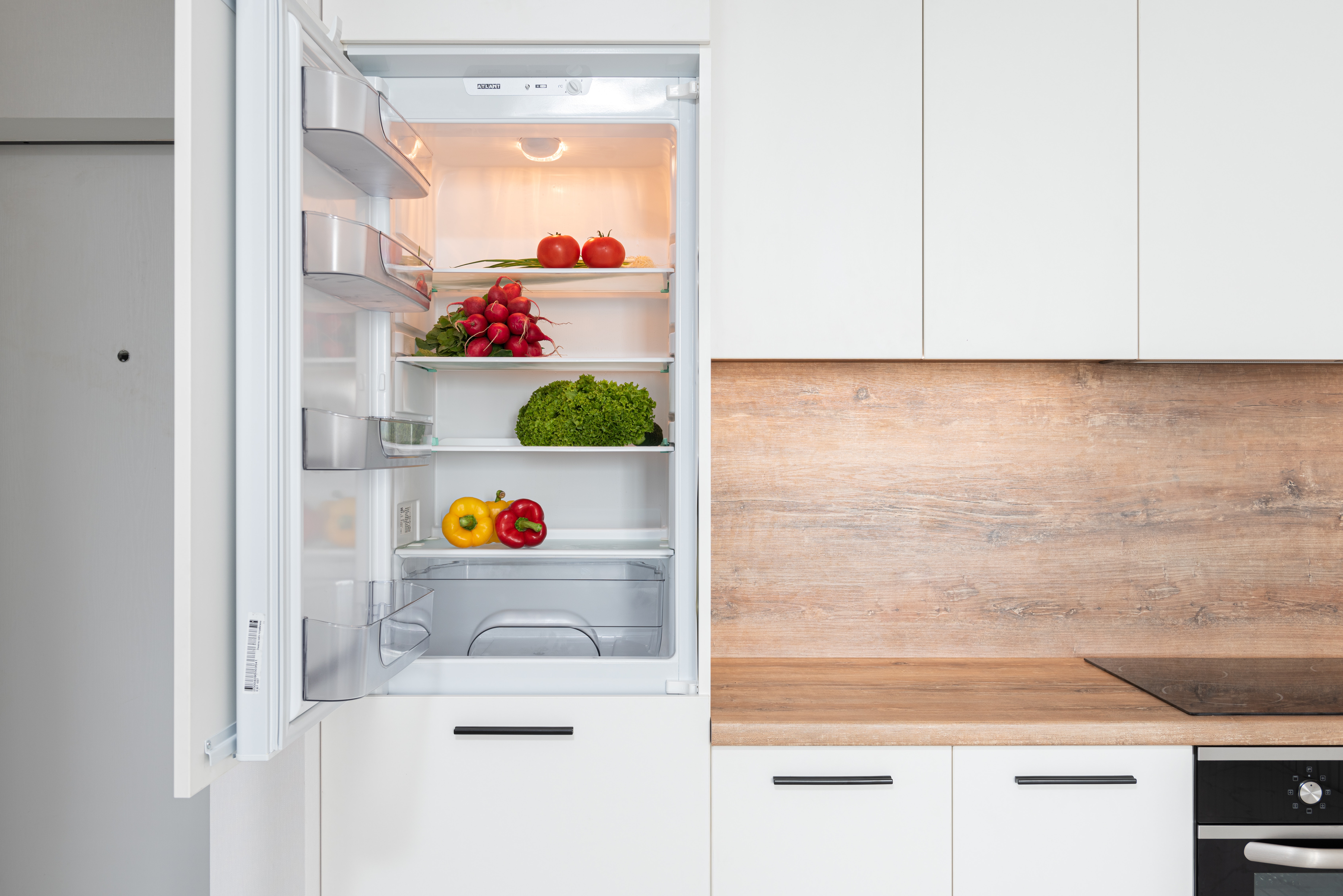Clean Out Your Refrigerator
go.ncsu.edu/readext?831956
en Español / em Português
El inglés es el idioma de control de esta página. En la medida en que haya algún conflicto entre la traducción al inglés y la traducción, el inglés prevalece.
Al hacer clic en el enlace de traducción se activa un servicio de traducción gratuito para convertir la página al español. Al igual que con cualquier traducción por Internet, la conversión no es sensible al contexto y puede que no traduzca el texto en su significado original. NC State Extension no garantiza la exactitud del texto traducido. Por favor, tenga en cuenta que algunas aplicaciones y/o servicios pueden no funcionar como se espera cuando se traducen.
Português
Inglês é o idioma de controle desta página. Na medida que haja algum conflito entre o texto original em Inglês e a tradução, o Inglês prevalece.
Ao clicar no link de tradução, um serviço gratuito de tradução será ativado para converter a página para o Português. Como em qualquer tradução pela internet, a conversão não é sensivel ao contexto e pode não ocorrer a tradução para o significado orginal. O serviço de Extensão da Carolina do Norte (NC State Extension) não garante a exatidão do texto traduzido. Por favor, observe que algumas funções ou serviços podem não funcionar como esperado após a tradução.
English
English is the controlling language of this page. To the extent there is any conflict between the English text and the translation, English controls.
Clicking on the translation link activates a free translation service to convert the page to Spanish. As with any Internet translation, the conversion is not context-sensitive and may not translate the text to its original meaning. NC State Extension does not guarantee the accuracy of the translated text. Please note that some applications and/or services may not function as expected when translated.
Collapse ▲In case you missed it, this past Monday was National Clean Out Your Refrigerator Day. The idea behind this designated day is to encourage everyone to clean out their refrigerator in advance of the upcoming holiday. Of course, let’s hope this doesn’t mean you only clean the fridge one day a year.
Cleaning the fridge now will allow you to know exactly what you have on hand when you start shopping for holiday foods. You’ll need room for some of that extra food you’re planning to store. Not only will you need room to store or defrost that Thanksgiving turkey, you’ll need extra space for those upcoming leftovers.
Food Safety
Another reason to clean the refrigerator is to reduce the risk for foodborne illness. Bacteria and other pathogens that might cause illness can lurk in the refrigerator. Especially be sure to clean up spills and drips from meat, fish, and poultry. Even if your kitchen appears to be clean on the surface, harmful bacteria can still be present even though you cannot see or smell it. Spoilage bacteria can grow at low temperatures, such as in the refrigerator. Eventually they cause food to develop off or bad tastes and smells.
Don’t Forget the Freezer
While it is Clean the Refrigerator Day, don’t forget the freezer. Do you have room in there to stash a frozen turkey (or an extra one if you catch it on sale)? If there is just too much in there, make plans to use up some of that food within the next couple weeks. A good inventory can help you do this.
If you find a year-old turkey in that freezer, the question arises: “is it safe to eat it for Thanksgiving?” Technically the answer is YES. Turkey will keep for a long time if held below zero degrees. They are usually packed in air and water-resistant wraps that help prevent quality loss during freezer storage. Full disclosure here: if the freezer has been working (no power outages) and the turkey has been frozen the whole time, there is not a food safety issue. However, there may possibly be a quality issue.
Cleaning Tips
All refrigerators are different. If you have the manual that came with your refrigerator (or can look it up online), read it and follow the cleaning instructions. If you can’t find it, here are a few tips:
- Remove all the foods from the refrigerator.
- Completely wipe down the inside of the refrigerator. Use a solution of two teaspoons of baking soda to a quart of warm water. Don’t use detergent, soap, or harsh chemicals as they may leave an odor or residue.
- Wash the rubber gasket around the door.
- Wash the drawers and underneath the drawers.
- Throw away all moldy or spoiled food.
- Get rid of anything you will not use.
- If your fridge has one, check to see if the water filter needs to be replaced.
- Vacuum condenser coils and under the refrigerator to remove dust.
Another thing to think about as you’re cleaning both the fridge and freezer is the temperature. Get yourself a couple of thermometers designed for use in these appliances. A refrigerator should be kept at 40 degrees or below and the freezer as close to zero as you can get it. A thermometer will help you keep the food safe and give you needed information should the power go out.
The best way to celebrate National Clean Out Your Refrigerator Day is to… clean out the fridge. There may be a surprise or two found in the back of one of the shelves. Use #CleanOutYourRefrigeratorDay to post on social media.
Sources
Cleaning the Refrigerator, Mississippi State University Extension and Refrigeration and Food Safety from the USDA Food Safety and Inspection Service.
Cheryle Syracuse wrote this article and more similar ones for the Family and Consumer Sciences Column in the Brunswick Beacon. Syracuse is an FCS team member and can be reached at N.C. Cooperative Extension, Brunswick County Center, 910-253-2610 or by email at cheryle_syracuse@ncsu.edu.





